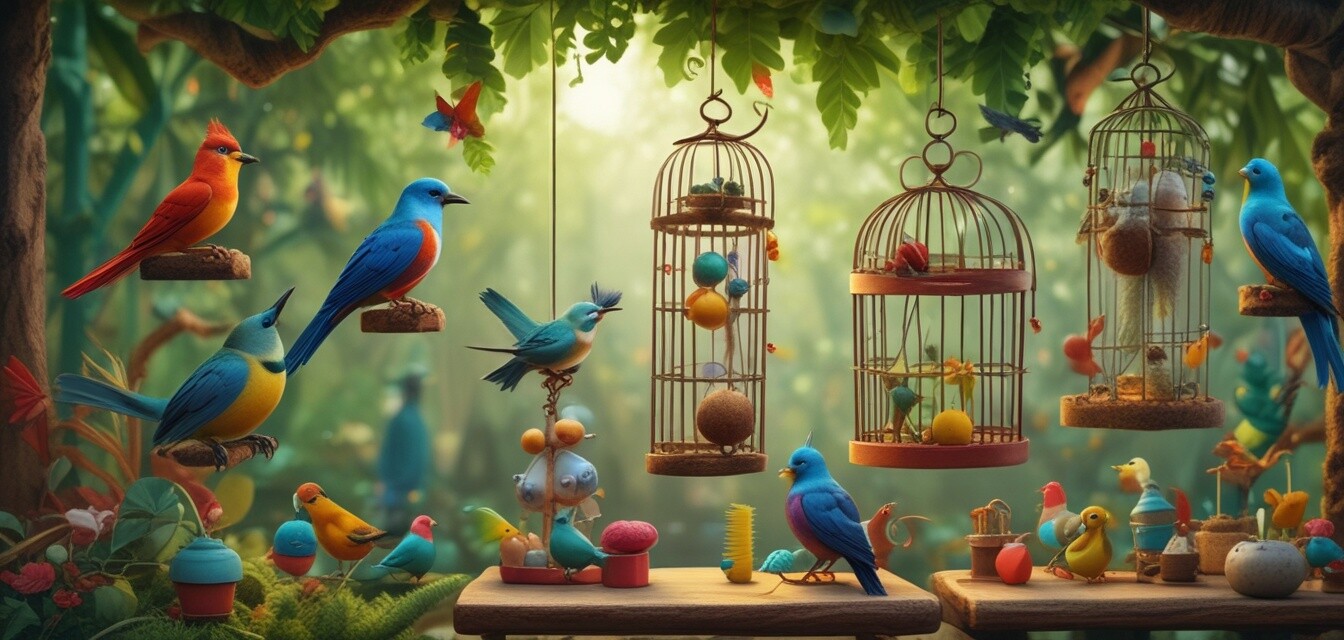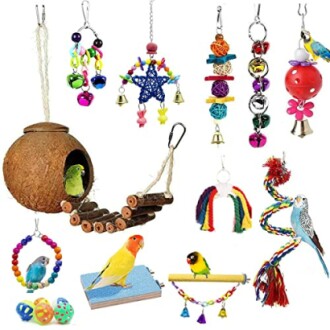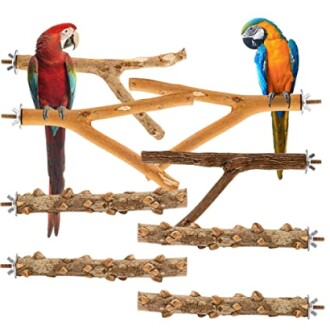
The Role of Mental Stimulation in Bird Health
Key Takeaways
- Mental stimulation is vital for the cognitive health of cage birds.
- Engaging activities can help prevent behavioral issues like depression and anxiety.
- Utilizing toys, perches, and interactive games can enhance their mental well-being.
- Regular rotation of toys and activities promotes consistent mental engagement.
Caring for your cage birds goes beyond basic feeding and cleaning. Just like humans, birds need mental stimulation to thrive. Understanding why mental engagement is pivotal can help bird owners provide enriching environments that promote cognitive health and overall well-being. In this article, we explore various activities and toys designed to keep your feathered companions mentally stimulated.
Why Mental Stimulation Matters
Cage birds are intelligent creatures that require a stimulating environment to prevent boredom and destructive behaviors. When a bird feels bored or unstimulated, it may resort to harmful habits like feather plucking or aggressive behavior.
Health Benefits of Mental Stimulation
Research indicates that mental stimulation can lead to improved health outcomes in birds, including:
- Reduced stress and anxiety.
- Improved social interaction skills.
- Enhanced problem-solving abilities.
- Strengthened bond between owner and pet.
Best Activities for Cage Birds
To promote mental stimulation, consider integrating a variety of activities into your bird’s daily routine:
| Activity | Description | Benefits |
|---|---|---|
| Toys for Chewing | Provide safe chewable toys made from natural materials. | Helps maintain beak health while promoting playfulness. |
| Foraging Opportunities | Use treat dispensers or hide treats around the cage. | Encourages natural foraging behaviors and stimulates problem-solving. |
| Interactive Playtime | Spend time interacting with your bird using hang toys or bells. | Strengthens the bond with your pet and provides physical stimulation. |
| Social Interaction | Allow for interactions with other birds if possible. | Encourages natural social behavior and reduces loneliness. |
Essential Toys to Consider
Providing suitable toys plays a significant role in a bird’s mental health. Here are two amazing products to consider for your feathered friends:
BIPY 16 PCS Bird Parrot Toys
This set includes various toys designed to keep your birds entertained, ensuring they have plenty of options for play and exercise.
Learn MoreEngaging with toys can significantly reduce boredom and stimulate your bird’s mind. Additionally, rotating toys regularly keeps their interest piqued.
8 Pcs Bird Perches Parrot Stand
Natural wood perches that offer a secure and comfortable place for your birds to explore and rest, designed to entice creativity and movement.
Learn MoreCreating an Enriching Environment
To create an enriching environment for your bird, consider the following tips:
Beginner's Tips for Bird Owners
- Choose a variety of toys and rotate them regularly.
- Incorporate natural elements like branches and safe plants in the cage.
- Establish a routine that includes dedicated playtime.
- Monitor your bird’s behavior to identify preferences and stimulate interests.
Preventing Boredom-Related Issues
Birds can develop behavioral issues due to a lack of mental stimulation. Here are some strategies to combat this:
- Provide multiple perches at varying heights for climbing and exploring.
- Set up social interaction times, where your bird can engage with you or other birds.
- Introduce sound toys or mirrors for visual stimulation.
The Impact of Boredom
As mentioned earlier, boredom can lead to serious health problems for birds. Symptoms may include:
- Feather plucking and other self-destructive behaviors.
- Increased aggression or moodiness.
- Withdrawal from social interaction.
Conclusion
Maintaining the mental health of your cage bird is an essential part of ownership. By providing engaging toys, regular social interaction, and stimulating activities, you can help your bird lead a happy and fulfilled life. Remember that consistent changes and new challenges are key to keeping your feathered friend entertained and mentally sharp.
Further Reading
For more insights on caring for your cage birds, check out our other resources:

